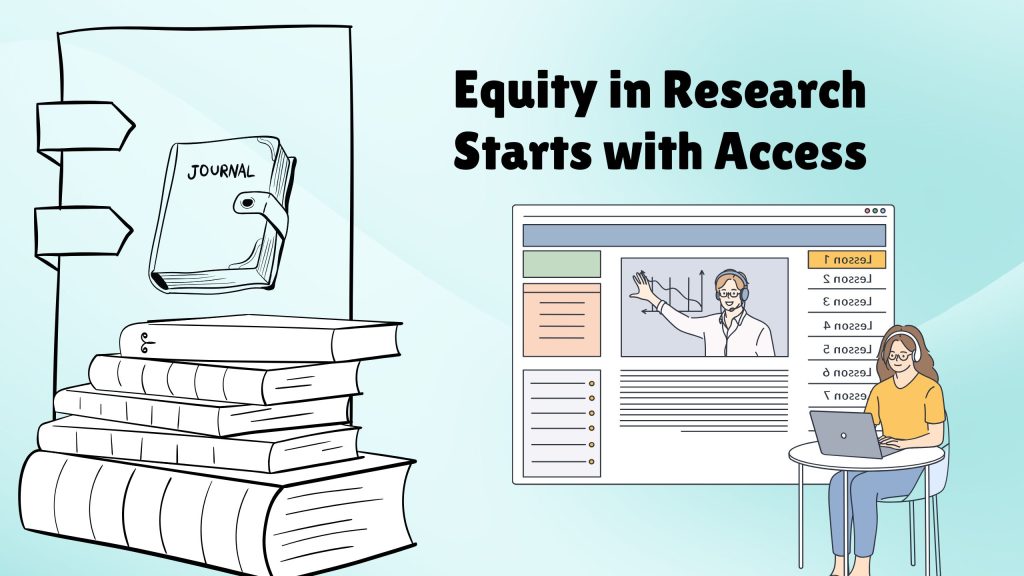How to Make Open Access More Equitable for All Researchers?

Open access (OA) publishing has transformed the landscape of scholarly communication, aiming to make research freely accessible to a global audience. Financial and systemic barriers often prevent researchers, particularly those from low- and middle-income countries (LMICs), from fully participating in this model.
Conference Inc is committed to fostering inclusive and equitable platforms for academic dissemination. Achieving equity in scholarly publishing requires actively dismantling the systemic and economic barriers that limit access for researchers from underrepresented or low-income regions. At the forefront of this effort, Conference Inc explores practical strategies to make open access publishing more inclusive.
The Challenge of Equity in Open Access
Open access publishing often involves article publishing charges (APCs), which can be a significant hurdle for researchers in LMICs. These fees, ranging from $150 to $9,900 USD (excluding tax), are often unaffordable for researchers without institutional or grant funding. This creates an uneven playing field, limiting the ability of researchers from less-resourced regions to publish in high-quality OA journals. Additionally, the traditional subscription-based model restricts access to research for those without institutional subscriptions, further exacerbating inequities.
Benefits of open access—global visibility, increased collaboration, and broader societal impact—are undeniable. Studies show that OA articles receive higher engagement and citations, fostering interdisciplinary and international collaboration. However, without equitable access to publishing, the promise of open access remains unfulfilled for many, undermining the diversity of perspectives critical to advancing science and society.
Innovative Solutions: Geographical Pricing for Open Access (GPOA) Pilot
One promising approach to addressing these inequities is Elsevier’s GPOA pilot, launched in 2023 across 142 gold open access journals. This initiative tailors APCs based on a country’s Gross National Income (GNI) per capita, making publishing more affordable for researchers in LMICs. By automatically applying discounts or waivers, the program removes the burden of requesting financial assistance, which can be a barrier for some authors.
In its first six months, the GPOA pilot received 21,500 submissions from nearly 100 of the 120+ eligible countries, demonstrating strong uptake. For example, Kabir Bindawa Abdullahi, a researcher from Nigeria, paid only 20% of the standard APC to publish in Elsevier’s MethodsX journal, enabling him to share his research globally. This model not only supports individual researchers but also enhances the diversity of voices in scholarly publishing, which studies suggest benefits both science and society.
The GPOA pilot builds on Elsevier’s long-standing commitment to initiatives like Research4Life, which provides free or low-cost access to academic content for researchers in over 125 countries. By integrating economic considerations into pricing structures, such programs aim to create a more inclusive research ecosystem.
Broader Strategies for Equitable Open Access
Beyond geographical pricing, several strategies can further promote equity in scholarly publishing:
- Institutional and Funder Agreements: Transformative agreements, such as “read and publish” deals, allow institutions to cover APCs for their researchers, reducing financial burdens. Elsevier has such agreements with over 3,600 institutions, including a 2021 deal with the University of California that lowered costs and supported OA publishing for UC authors. These agreements streamline the process and ensure compliance with funder mandates, making OA accessible without additional costs to authors.
- Green Open Access: This model allows authors to publish in subscription journals and share a version of their article in institutional or funder repositories after an embargo period. All Elsevier journals support green OA, providing a cost-free alternative for researchers unable to afford APCs.
- Waivers and Discounts: Automatic waivers or discounts for researchers in LMICs, as seen in the GPOA pilot and Research4Life, remove financial barriers. In 2023, Elsevier waived or discounted APCs for nearly 80% of authors from the Global South. Transparent pricing and clear eligibility criteria further enhance accessibility.
- Support for Librarians and Institutions: Librarians play a crucial role in guiding researchers toward cost-effective OA options. Resources like Elsevier’s Open Access Essentials for Librarians and online OA guides provide tools to navigate the publishing landscape. Institutions can also leverage consortia, such as South Africa’s SANLiC, to negotiate agreements that enhance OA opportunities.
- Investment in Infrastructure: Streamlined systems like Elsevier’s Online Author Communication System (OACS) personalize the publishing process, presenting tailored APCs based on an author’s country, affiliation, or funding status. This ensures transparency and simplifies compliance with OA mandates.
Achieving equity in scholarly publishing requires a multifaceted approach that combines innovative pricing models, institutional support, and accessible publishing options. Initiatives like the GPOA pilot demonstrate the potential to reduce financial barriers, but ongoing evaluation and community feedback are essential to refine these models. Collaboration between publishers, institutions, funders, and researchers is critical to ensure that open access fulfills its promise of inclusivity.
By prioritizing affordability, transparency, and flexibility, the scholarly publishing community can create a more equitable ecosystem. This not only empowers researchers from all regions to contribute to global knowledge but also enriches science with diverse perspectives, driving progress for society as a whole.
